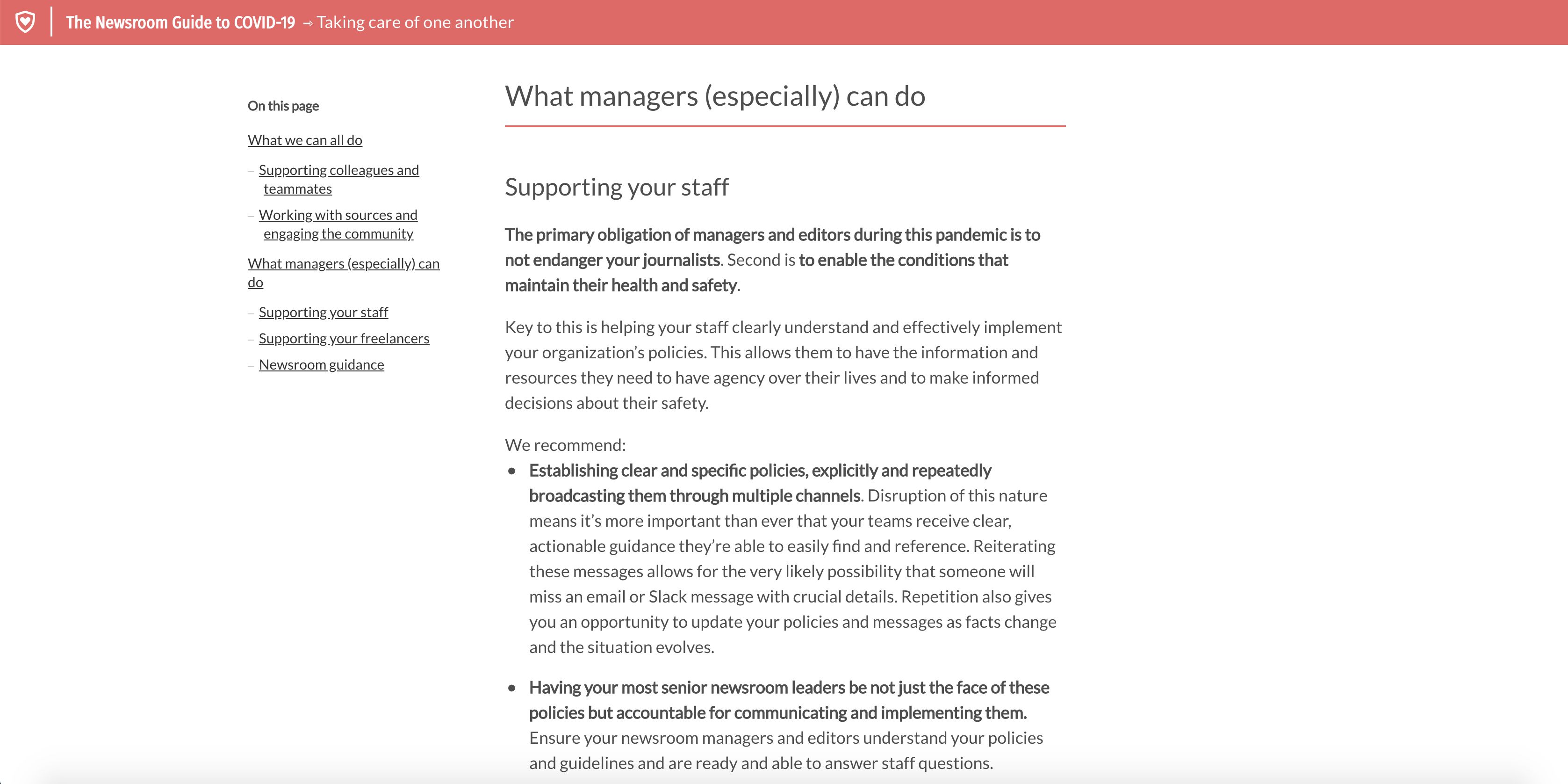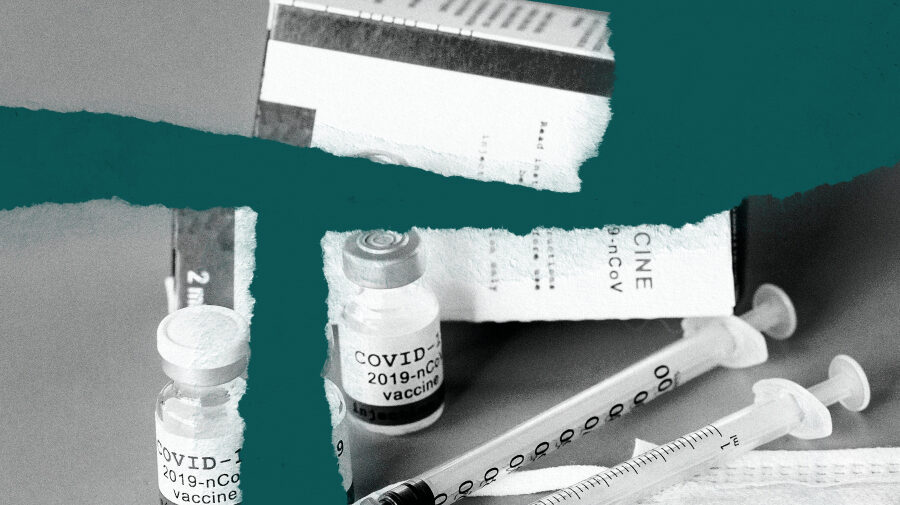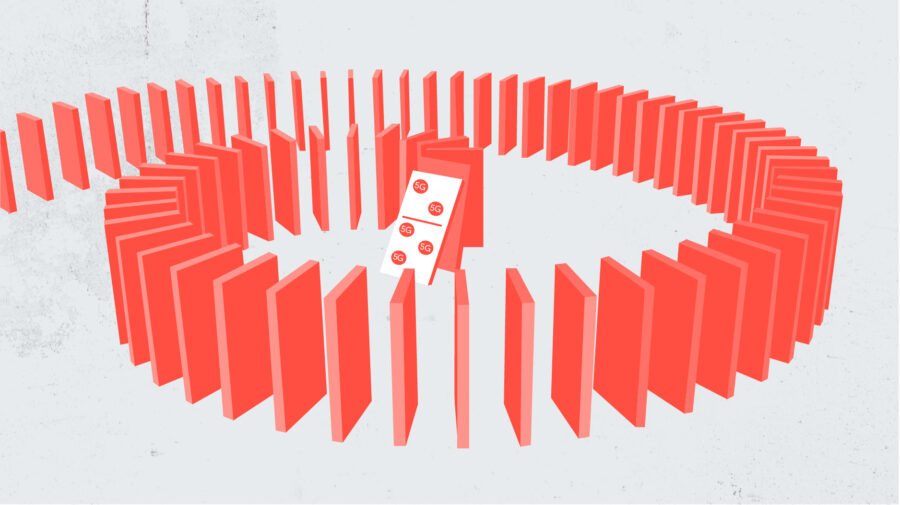As speculation, rumours and confusion intensifies around Covid-19, journalists are under increased pressure to ensure they provide robust, trustworthy information to the public.
But with an unprecedented volume of information circulating across social networks and within private messaging groups, teams of journalists are at risk of becoming overwhelmed. Distressing events, the direct threat of the virus and new isolated work practices all add to increased psychological pressure on those tasked with reporting the pandemic.
To support staff, some news outlets focusing on disinformation are quickly adopting new methods to prevent burnout and acknowledge the associated personal experience that may impact or constrain the efforts of their team.
Ask what help people need
Full Fact, the UK’s independent fact-checking charity, is asking staff what support they need “often and consistently”, says its Chief Executive Will Moy.
“It’s really important that it is clear to people that they can and are invited to say what support would be helpful,” he adds. “We know it’s a time when people’s wellbeing is affected not just by their own experience, not necessarily by their families, but friends, housemates and other people they care about.”
Raise awareness
Making everyone in the newsroom aware of the additional stress coronavirus brings is the most important thing an editor can do, says Natalia Antelava, Editor in Chief of Coda Story, the Georgia-based outlet focusing on disinformation and the war on science, which just launched a coronavirus newsletter.
Dear Readers,
The magnitude of misinformation spreading in the wake of the COVID-19 pandemic is overwhelming our small team. We’re seeing scores of people, in a rush to find any comfort, make things worse as they share (sometimes dangerous) misinformation.
— snopes.com (@snopes) March 23, 2020
Being asked to sit at home is a “different kind of mental strain” to being asked to report in the field but it’s a strain nonetheless, she says.
“There’s little that you can do but make everyone aware of this being an issue, and make everyone aware of the fact this is not easy for anyone and it’s okay to talk about it.”
Hone internal comms
Full Fact has “ramped up” internal communications, having introduced new daily stand ups so “everybody sees colleagues’ faces at the start of every day”, says Moy.
“A lot of the advice I’ve seen about remote working is you have to spend even more time communicating than you think you do,” adds Moy. “That’s really important to make sure everyone has time to share ideas and get the information they need to do their job.”
Be transparent about options
Being transparent about available options for help and normalising them is paramount, says Stacy-Marie Ishmael, Editorial Director of the Texas Tribune and one of the journalists behind The Newsroom Guide to #COVID-19, a resource for reporters and newsroom managers.
“Present them in a way that doesn’t make it seem like it would be unusual for you to access these resources,” Ishmael says, adding that she is open with her team about therapy. “I want to make sure that I’m modelling that this is completely normal and they don’t need to feel like they have to apologise if they’re stressed out, worried or scared.”
Have regular check-ins
At Coda Story, they are spending a lot more time having personal one-to-one meetings. “You don’t want to call them too much but I try to regularly check in with everyone to see how they’re doing,” says Antelava.
Alleviate pressure
It’s an important time for fact checking and good information can save lives, says Moy. “It’s easy for people to put a lot of pressure on themselves when that’s the scale of the opportunity and the scale of the challenge is obvious in front of us.”
But Moy is clear Full Fact will not be able to do everything: “We will have to work around people being ill, people needing time to adjust but we will make the most of the time and resources we have.”

Screenshot: The Newsroom Guide to #COVID-19
Encourage switching off
Reporters “hate the idea they are not superhuman and powerful”, says Ishmael. “We run towards the fire which is great for the story, but bad for the person.”
Managers and newsroom leads need to make it clear to staff that “taking care of yourself is not letting the team down”, says Ishmael, advising editors to encourage breaks and not being online around the clock – and not undermining that with their own behaviour.
Create space for light
Reporting on the coronavirus crisis and disinformation can be heavy. To add some light to the working day, Antelava explains that Coda Story started a new channel on messenger platform Slack, entitled #stayingsane. For “silly stuff”.
Let go of hyper-productivity
The “productivity fetish” in which workloads tower and employees are expected to work 24/7 is “really challenging at the best of times and right now is actively harmful”, says Ishmael.
“Sure we’re always going to need the story, but us needing means our teams have to give. It’s easy to forget nobody is an unlimited renewable fountain of time and energy and effort particularly in a crisis.”
Recognise limits
Teams tackling coronavirus misinformation have to recognise there is a limit to what they can do, says Moy. “These are difficult times, people are facing a lot of challenges: worry, potentially grief. We can’t make those go away, we can only walk with people through that experience, provide the support we can try to be open to what needs to be done to help people through it.”
“It’s a learning experience for everybody.”
Further reading
- First Draft’s internal guidance for staff on mental wellness and vicarious trauma in the age of Covid-19
- The Newsroom Guide to COVID-19’s What managers (especially) can do section
- How Journalists Can Deal With Trauma While Reporting on COVID-19 (GIJN)
- Covering Trauma: Impact on Journalists (Dart Center)
Send additional tips for supporting journalists’ mental wellbeing during Covid-19 to lydia@firstdraftnews.com
Want to talk through these challenges with other editors and journalists? Join our Mental Wellness and Vicarious Trauma webinar on April 9, 2020 at 11am ET/3pm GMT






